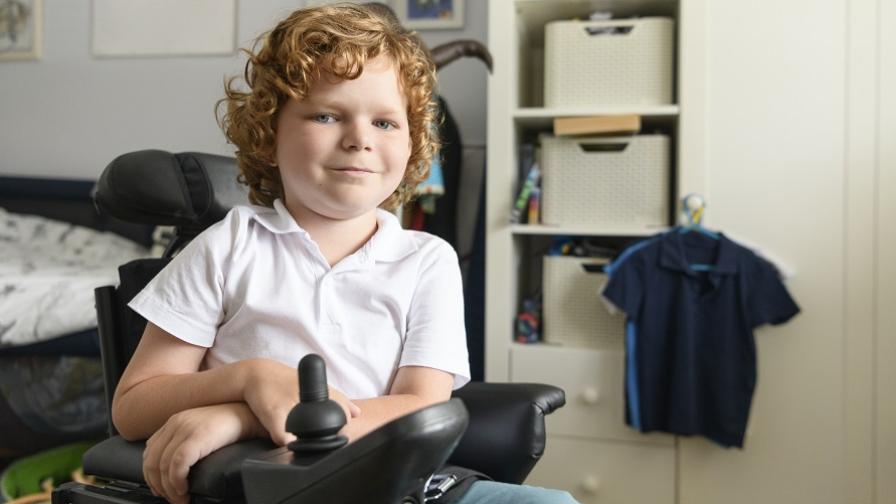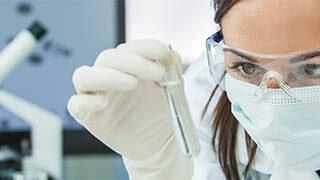Action has a history of supporting research into Duchenne, including supporting crucial proof of concept work to develop gene therapy drugs. But while these show exciting promise, they are not suitable for all patients. More recently we have supported successful research to identify new drug compounds that could become a much-needed new treatment suitable for all.

Every year in the UK around 100 boys are diagnosed with Duchenne muscular dystrophy. Most lose their ability to walk between the ages of 10 and 14 years. They will eventually become paralysed and many lose their lives by their late twenties.
Duchenne is caused by faults in a gene which plays a vital role in making muscles work properly. This gene should produce an essential protein called dystrophin. It is a lack of dystrophin that causes the relentless muscle wasting and weakening faced by affected boys.
In 2020 Action, along with charity partner LifeArc, awarded funding to Professor Angie Russell and her team at the University of Oxford. Their aim was to identify a drug that could boost utrophin, another protein found in muscles that could potentially act as a substitute for dystrophin and slow down disease progression in boys with Duchenne. A big advantage of utrophin replacement therapy is that it is potentially suitable for all patients whereas current gene therapies are not.
The researchers successfully identified a number of potential new drug compounds and now understand how they work to increase utrophin levels. They have gone on to secure further funding of £2.2m from the Medical Research Council to develop these compounds into potential treatments.
These findings have allowed us to secure further funding to develop an effective and long-lasting therapy for the benefit of all children with Duchenne.”
Supporting previous breakthroughs
Action has a proud history of supporting groundbreaking research to help children with Duchenne.
In previous work funded by Action, in 1997, Professor George Dickson investigated whether a new type of gene therapy drug could be developed to restore some function to the faulty dystrophin gene and thereby slow disease progression. The work, which was at its earliest stages, showed that this type of treatment could work in the laboratory.
This research contributed to the development of a new class of medicines, being offered to boys with Duchenne in clinical trials.
Professor Dickson said: “The success of the original drug development and the clinical trials derives at least in part from the early studies that Action supported.”
It all has to start somewhere and I think it's a tremendous legacy for the charity to be proud of”

